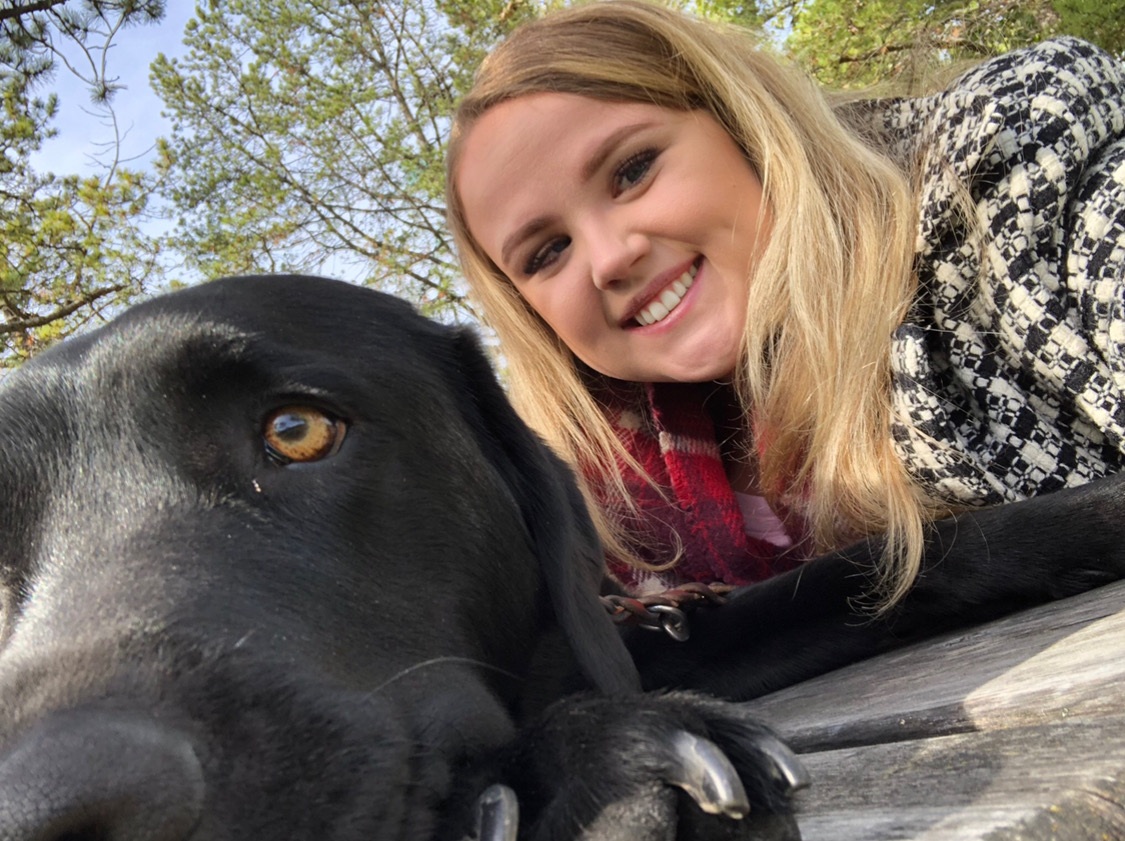Everyone in North America is adjusting to sheltering in place, social distancing, and uncertainty about what the new normal will be as a result of the COVID-19 Pandemic. Being blind or visually impaired adds an extra hurdle for our graduates, like Beth Deer and her guide dog, Patronus. But like most things she has faced in life, it hasn't slowed her down.
Beth was born with optic nerve hypoplasia and latent nystagmus, and she lost her sight by age 14. Outgoing, quick-witted and straightforward, Beth recently landed a job as a bureau reporter in Edmonton, Alberta, for AMI (Accessible Media Inc.), a nonprofit media company that produces content and broadcasts that provide a voice for Canadians who are blind or partially sighted. Beth hosts regular segments on the program, AMI This Week.
Beth credits much of her success to her guide dog, Patronus. After Beth moved to Edmonton from her native England, she was paired with Patronus via our sister organization, Guide Dogs for the Blind International (GBDI), which is a registered charity in Canada. Beth said that Patronus matches her fast-paced walking and no-nonsense personality.
“It’s amazing how alike we are in our personalities,” Beth said. “We’re a perfect match.”
Being paired with Patronus has given Beth the confidence to pursue her dreams and to navigate life on her own terms. Beth says Patronus provides a social bridge to acceptance by mainstream society that using a white cane could never do. And she doesn’t miss the bruises she used to get when the cane would get stick in the pavement and hit her. Patronus even helps Beth navigate around Canada’s notorious snowbanks in winter.
“Weather is a huge challenge for people who are blind in Canada,” said Beth. “Snowbanks were not something Patronus initially understood, but he quickly learned how to navigate them, and now he’s a pro.”
While not as many people have been out and about since the Pandemic hit, Beth has been keenly aware of how the sighted community has responded to it by reading or hearing their comments.
“Since COVID, sighted people have been complaining about feeling so isolated,” said Beth. “My hope is that that this will help them realize that many disabled people live with these kinds of challenges all the time because there is no ‘normal’ for us.”
Another common complaint in the sighted community since COVID hit has been limited access to grocery delivery. According to Beth, this type of access, along with many other similar access issues, is an ongoing concern to the disabled community.
Hearing some of the public’s reaction to the Pandemic, it’s not surprising that one of Beth’s main messages to the sighted community going forward through her AMI platform will be to "not to take your access for granted."
Tune in to watch Beth's feature "Follow My Lead," which highlights the partnership between a guide dog and their handler, and aired on Accessible Media Inc. in August 2020.
For more than 50 years, Guide Dogs for the Blind has been providing training and services to residents of Canada. Our sister organization, Guide Dogs for the Blind International (GDBI), makes those matches possible by providing funding for all costs associated with our training, comprehensive follow-up services, and veterinary financial assistance to our alumni in Canada. Learn more about GDBI at gdbinternational.ca.




